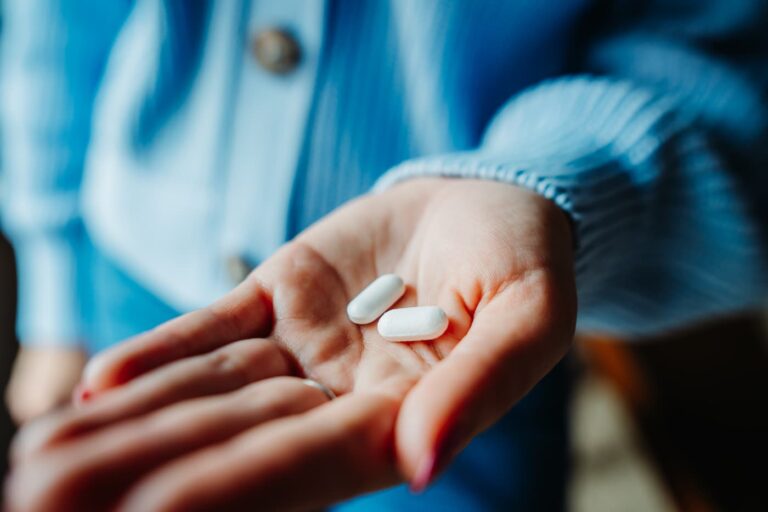SSRIs are widely used, but patients don’t get the full story

This article is not meant to shame or scare people who justifiably want to feel better. And I want to start with a disclaimer that when your depression is life-threatening, antidepressants can alleviate symptoms long enough to create a window of opportunity to take action. But they were never properly tested or meant for long-term use. They are being overprescribed while the underlying mechanisms are ignored, and patients are not being informed about the risks.
The pharmaceutical industry has invested many millions of dollars to promote the “chemical imbalance” theory of mental illness, popularizing psychiatric diagnoses to expand markets for their drugs. Antidepressant use has exploded by nearly 400 percent since the 1990s. Today, 13 percent of all American adults—over 30 million people—take antidepressants. Among women, it’s nearly 1 in 5.
The Chemical Imbalance Myth
For decades, pharmaceutical giants convinced doctors and patients that depression was simply “low serotonin.” However, a massive 2022 analysis of decades of research looking at serotonin activity, metabolites, receptor levels, etc., found zero consistent evidence that depressed people have lower serotonin levels than anyone else.
In other words, the foundational claim used to sell these drugs to millions of people was scientifically baseless from the start, yet created billions in revenue for the companies that make these drugs. What’s worse is that they knew this all along.
Suicide risks
These drugs have been shown to increase suicide risk in anyone under 25. The FDA’s own analysis shows about 20 extra cases of suicidal thoughts/behaviors per 1,000 treated youth treated with SSRIs compared to placebo. Despite widespread prescribing, U.S. suicide rates have risen steadily since the late 1990s.
The Sexual Destruction Risks You’re Not Warned About
Here’s what your doctor probably didn’t mention, or perhaps even know: up to 70 percent of people on SSRIs lose their ability to function sexually. This is not just “low libido,” but instead the destruction of normal human sexual response.
For some, the sexual dysfunction never goes away, even after stopping the drugs. Regulators in Europe, Canada, and Australia now officially acknowledge Post-SSRI Sexual Dysfunction (PSSD), characterized by permanent sexual numbness and emotional blunting that can last years or even decades.
The Withdrawal Trap
Most early SSRI trials were short-term, and although maintenance studies exist, the long-term effects remain uncertain, according to experts.
Many who stop taking an SSRI after years of use endure symptoms like electric shocks in the brain, crushing anxiety, and insomnia that goes on for months. Some people need years to taper off safely after long-term use.
Pregnant Women: The Ultimate Test Subjects
Roughly 1 in 20 pregnant women use antidepressants, which cross through the placenta into developing babies.
No long-term studies exist, but we do know that 25-30 percent of babies born to mothers on SSRIs go through drug withdrawal as newborns. We also know there’s evidence linking these drugs to serious heart problems in some babies.
The Mania Side Effect
SSRIs can also trigger full-blown mania in some people. But instead of discontinuing the SSRI, many patients are given additional drugs to treat the mania.
Inside the System: A Former FDA Official Speaks Out
Dr. Josef Witt-Doerring is a board-certified psychiatrist who worked for a pharmaceutical company and then for the FDA.
What he saw compelled him to speak out. At the FDA, which receives significant funding from pharmaceutical companies, resources were constantly diverted from investigating drug safety to fast-tracking new drug approvals.
Today, Witt-Doerring runs a psychiatric drug-tapering clinic helping people safely taper off psychiatric medications like antidepressants and benzodiazepines, drugs some patients have been taking for many years or even decades, whose side effects have destroyed their lives, their doctors either don’t recognize or refuse to acknowledge.
His message is simple: patients are paying the price for a broken system.
Looking for the underlying mechanism
These drugs mask the underlying causes of depression. Sometimes depression is an appropriate response to a life situation involving relationships, work, finances, trauma, grief, etc.
In functional medicine, we follow the science that shows relationships between physiological causes and depression, and frequently see the following mechanisms:
- Chronic inflammation: Persistent immune activation can alter neurotransmitter function and mood regulation.
- Gut inflammation/intestinal permeability (leaky gut): Triggers immune responses that affect brain chemistry and mood.
- Low thyroid function: Slows metabolism and reduces energy, often leading to low mood.
- Undiagnosed/unmanaged autoimmunity: Ongoing immune attacks can disrupt hormone and nervous system balance.
- Past brain injury: Structural or functional changes can impair mood-regulating brain regions.
- Sedentary lifestyle: Reduces endorphin release and increases risk of inflammation and poor mood.
- Food intolerances (particularly to gluten): Can provoke immune responses that influence the brain and mood.
- High blood sugar/insulin resistance: Leads to systemic inflammation and impaired brain energy use.
- Chronically low blood sugar/reactive hypoglycemia: Causes stress hormone surges that destabilize mood.
- Hormonal imbalances (low estradiol in women, low testosterone in men): Reduce neuroprotection and neurotransmitter support.
- Processed food diet: Lacks key nutrients and promotes inflammation that contributes to depression.
- Chronic infections (Lyme, EBV, mold, etc.): Can drive persistent immune activation and neuroinflammation.
- Nutrient deficiencies: Low B vitamins, vitamin D, magnesium, or omega-3s impair neurotransmitter synthesis and brain health.
- Sleep disorders (apnea, chronic insomnia): Disrupt circadian rhythms and neurotransmitter balance.
- Chronic pain conditions: Pain itself alters brain circuits involved in mood and increases inflammation.
- Medication side effects: Certain blood pressure drugs, steroids, hormonal therapies, and antibiotics can affect mood.
- Alcohol or substance use: Alters neurotransmitter systems and worsens nutrient depletion.
- Environmental toxin exposure: Heavy metals, pesticides, and endocrine disruptors can affect brain and hormone function.
The Bottom Line
SSRIs might be helpful in an emergency, but they are not meant for long-term use, and most patients are not being given all the information about risks.
I hope this article helped you see why it’s worth it in the long run to investigate what is causing your depression versus masking it with a drug.
Visit RedRiver Health and Wellness
Undiagnosed low thyroid or autoimmunity are common causes of depression. Visit RedRiver Health and Wellness and inquire about a consult if you think this may be the case for you.
Sources:
https://pmc.ncbi.nlm.nih.gov/articles/PMC2630355/
https://www.sciencedirect.com/science/article/abs/pii/S0165178124002026
https://pubmed.ncbi.nlm.nih.gov/18668279/
https://www.mdpi.com/1424-8247/3/9/2861
https://www.cdc.gov/nchs/products/databriefs/db76.htm
https://www.cdc.gov/nchs/products/databriefs/db377.htm
https://jamanetwork.com/journals/jama/fullarticle/1141293
https://www.fda.gov/drugs/postmarket-drug-safety-information-patients-and-providers/antidepressant-use-children-adolescents-and-adults
https://www.nejm.org/doi/full/10.1056/nejm199912093412401
https://www.frontiersin.org/articles/10.3389/fpsyt.2022.952478/full
https://www.ema.europa.eu/en/medicines/human/referrals/selective-serotonin-reuptake-inhibitors-ssris
https://www.tga.gov.au/news/safety-updates/ssri-and-snri-antidepressants-updated-information-sexual-dysfunction
https://recalls-rappels.canada.ca/en/alert-recall/ssri-and-snri-antidepressants-information-regarding-sexual-dysfunction
https://pubmed.ncbi.nlm.nih.gov/24602102/
https://www.ncbi.nlm.nih.gov/pmc/articles/PMC6425451/
https://www.acog.org/clinical/clinical-guidance/committee-opinion/articles/2008/04/use-of-psychiatric-medications-during-pregnancy-and-lactation
https://www.ncbi.nlm.nih.gov/books/NBK548348/
https://pubmed.ncbi.nlm.nih.gov/18364362/
https://www.thelancet.com/journals/lancet/article/PIIS0140-6736(17)32802-7/fulltext
Related Articles

Prescribing and Expanded Options New to RedRiver Health and Wellness
For years, Red River Health and Wellness has been known for helping complex, chronic, and…
[ READ MORE ]

How to age well — tips for longevity
Have you noticed that some older people are still able to stay active and lucid…
[ READ MORE ]

Too MUCH iron is inflammatory
When we think about iron and health, most people assume any iron disorder is iron-deficient…
[ READ MORE ]
